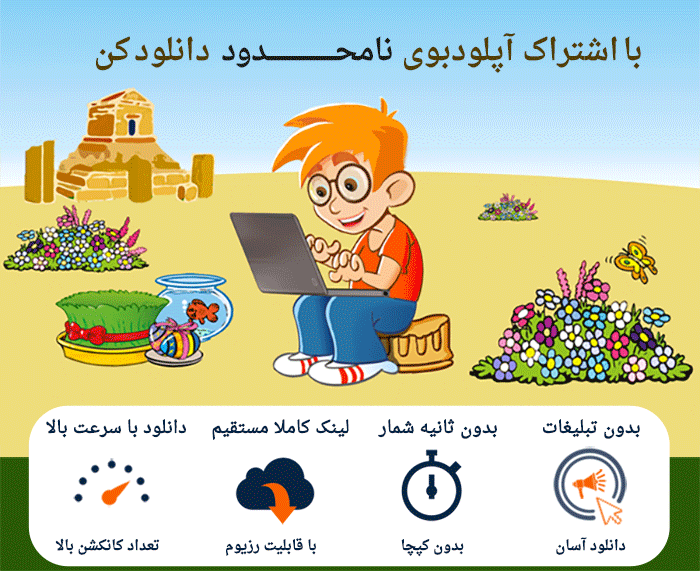File Download Link Generated,This direct link will be available for your IP next 3 hours
Watch 5-minute Persian animations on
Animation DNA YouTube !
UPGRADE YOUR ACCOUNT
Pick a plan that best suits your needs
FREE REGISTERED
100GB Cloud Storage
512Kbps Download Speed
Download Resume
Download Delay
Download With Captcha

With Advertisment
PREMIUM MEMBER
1TB Cloud Storage
Unlimited Download Speed
Unlimited Bandwidth
No Advertisements
Downloads Resume
No Downloads Delay
No Downloads Captcha
Cloud Storage Support
Remote URL Upload
Files Never Deleted
GUEST
No Hosting!
256Kbps Download Speed
No Download Resume
Download Delay
Download With Captcha

With Advertisment
